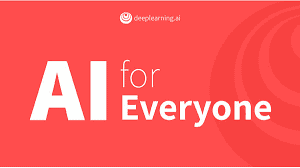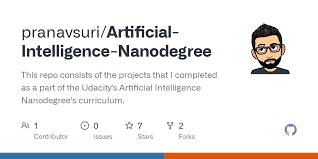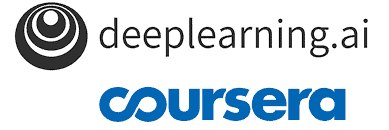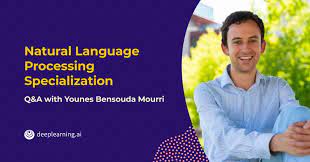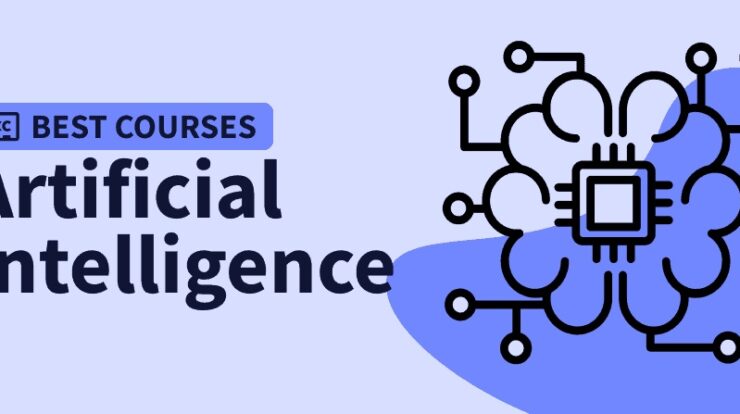
Best and most efficient artificial intelligence course will be described in this article. A technological research company called Gartner predicts that this year’s growth in the artificial intelligence market will be little over 21%. As a result of this expansion, there is a substantial need for AI engineers to assist in the upkeep, development, and creation of new AI systems. My top picks for online AI courses that you can take right now to get started in the subject are the courses listed below.
What AI Means
When we think of artificial intelligence, we frequently picture machines that resemble people, such in the movies Ex Machina and Westworld. This highly developed form of AI, more technically known as Artificial General Intelligence (AGI), is currently unattainable but is actively being explored.
Artificial Narrow Intelligence (ANI), or AI systems specialised on specific tasks like autonomous driving, Starcraft gaming, and human debate, has seen notable advancements.
In his course AI for Everyone, renowned machine learning expert Andrew Ng explains why AGI has not advanced as much as ANI. The majority of this article will concentrate on suggesting ANI courses because nearly all online AI courses relate to narrow intelligence.
What Should you learn?
The author of Artificial Intelligence: A Modern Approach, one of the most often required texts in college AI courses, discusses the numerous specialised areas of intelligence that, when integrated, could result in an AGI system.
- The use of natural language processing to effectively communicate in a human language;
- Knowledge representation to keep track of what it has learned or heard;
- Automated reasoning to find solutions and form new hypotheses;
- Machine learning to recognise and extrapolate patterns, adapt to new situations.
- Combining speech recognition and computer vision to sense the environment;
- Robots that can move and manipulate stuff.
It’s important to recognize that machine learning is an essential part of an AI curriculum and that there is a lot of overlap between machine learning and AI courses.
The development of device learning, particularly deep learning and reinforcement learning, is responsible for many of the most significant advancements in artificial intelligence as we currently understand it. I’ve given their presence in the curriculum additional thought while looking for and choosing the best courses because of how crucial they are to AI.
We need to briefly discuss the prerequisites for AI courses before moving on to our course choices.
Prerequisites
The majority of AI courses presuppose a basic understanding of statistics, probability, linear algebra, calculus, and programming; without this exposure to mathematics, it will be difficult for you to grasp many AI concepts. Although a graduate-level understanding is not required, AI is a complex area of computer science and mathematics, therefore familiarity with these concepts is crucial.
The best courses that may help you are listed below if any of these topics make you uncomfortable:
- Fat Chance Probability: Harvard Probability from the Ground Up
- Fundamentals of Statistics from MIT, statistics
- MIT’s linear algebra 18.06 is a good place to start.
- Calculus: MIT offers single-variable and multivariable calculus.
- Programming: Take a Python course from Codecademy or another reputable provider.
It could be simpler to enrol in one of the AI courses listed below and refer back to these courses when something doesn’t make sense if you have some knowledge with them. With the exception of Codecademy, all of the aforementioned preparatory courses feature totally free video content. Instead of sitting and watching videos, try to figure out as many problems as you can about these topics.
Instead than just sitting and watching films, try to figure out as many issues as you can about these topics.
Top 7 Best Artificial Intelligence Courses In 2022
Top 7 Best Artificial Intelligence Courses are explained here.
1. AI for Everyone
Ideal for:
Novices to AI who want a thorough, non-technical introduction of the subject
Overview
The greatest non-technical introduction to AI is provided in this course taught by Andrew Ng, who also created the renowned Stanford Machine Learning course.
This is a good fit for a thorough analysis of AI, its capabilities, common misunderstandings, and advantages. On the other hand, you would be better off choosing one of the other courses on our list if you are interested in the technical aspects of putting AI ideas into practise.
Anyone can have educated conversations with practitioners and speak intelligently about AI in its current state thanks to Andrew Ng’s great explanation of the intricacies of AI in straightforward, largely non-technical words.
Syllabus:
What is AI?
Implementing AI Projects
- Implementing AI in Your Business
- Society and AI
The best technical courses, those requiring the aforementioned math and programming knowledge as prerequisites, will be recommended in the remaining sections of this article.
2. Artificial intelligence Nanodegree
Ideal for:
Anyone looking to master a variety of AI techniques from some of the leading AI professionals
Overview
This AI course was co-created by Peter Norvig, the author of Artificial Intelligence: A Modern Approach, the most popular AI textbook in universities. The course’s curriculum provides an overall review of AI approaches by following a similar but abbreviated path to Norvig’s textbook.
The course includes a number of example projects that will put your newly acquired knowledge from each session to the test, such as creating a part-of-speech tagging model, a sudoku solver, a forward planning agent, and an adversarial game-playing agent. These projects will give you important portfolio material and evidence of your newly learned AI abilities.
Syllabus:
- Artificial Intelligence Overview
- Traditional Search
- Computerized Planning
- Optimizing Issues
- Competitive Search
- Basics of Graphical Probabilistic Models
This course provides a solid foundation in artificial intelligence methods overall. The presentation is made by two of the best brains in the field and the material is similar to many introductory AI courses taught at colleges. This is another artificial intelligence courses.
Despite the benefits, machine learning—a crucial AI technique—is absent from this programme. Check out the course after that in this list for that.
3. Professional certificate in computer science for Artificial Intelligence
Ideal for:
Students want a stronger computer science foundation
Overview
One of the most well-liked computer science courses now offered online is Harvard’s CS50. With this two-part professional degree from edX, students can enter the field of artificial intelligence even without having taken the prerequisite CS50 and CS50AI courses at Harvard.
Learning how to create intelligent systems requires a solid understanding of traditional computer science topics because AI is a branch of CS. Both courses must be accepted in order to earn the professional degree, but if you already feel that your understanding of computer science is sufficient, moving directly to the second course can be more convenient and time-efficient.
This course doesn’t qualify as an introduction to programming, despite including sections on C and Python. It could be hard to keep up if you aren’t already familiar with a programming language.
Syllabus:
Course 1: Computer Science Overview
- Computer Science Introduction
- Using C for programming
- Command line, loops, conditional statements, and data types
- Command-line parameters, arrays, debugging, functions, and variables
- Algorithms
- Bubble sort, selection sort, recursion, merge sort, linear search, binary search
- Memory
- Call stacks, Hexadecimal, pointers, custom types, dynamic memory allocation
Information Structures
- attempts, hash tables, and singly-linked lists
- Python programming, for example
- Using Python and SQL
- Web development
- Internet introduction: HTML, CSS, JavaScript, TCP, HTTP, and DOM
- Ajax and Flask web servers
Course 2: Python-based Introduction to Artificial Intelligence
- Searching for answers to issues
- Knowledge: the ability to represent information and make conclusions from it.
- Uncertainty – how to deal with uncertain events using probability
Finding the ideal solution to a problem is called optimization.
- Using data to learn and perform better
- Neural Networks, which use structures like brains to carry out tasks.
- Processing natural language used by people
The classes were an engaging blend of on-stage presentations and code demos, in my opinion. Although the professors are superb instructors, there is no support provided. This series will test and demand you in ways you’d anticipate from a real college course.
4. Deep Learning Specialization
Ideal for:
Students with some experience who desire to explore the deep learning field of artificial intelligence
Overview
This Specialization by Andrew Ng delves deeply into deep learning, a sophisticated neural network technique.
Although deep learning is only one component of AI, it has been instrumental in many of the most remarkable successes in the field. This course includes comprehensive advice on creating, honing, and improving machine learning models and is intended to provide students a broad understanding of recent advances in deep learning.
Syllabus:
Neural networks and deep learning in course one
Understanding Deep Learning
- Neural Networks: Basics
Low-Level Neural Networks
Deep neural networks (DNNs)
Course 2: Hyperparameter Tuning, Regularization, and Optimization for Improving Deep Neural Networks
- Deep Learning applications in the real world
- Optimization Methods
- Programming frameworks, batch normalisation, and hyperparameter tuning
Building Machine Learning Projects in Course 3
- Production process for ML
- Techniques for analysing errors
Convolution neural networks, course four
- Convolutional neural network fundamentals
- Models with deep convolutions
- Detection of Objects
- Unique Applications: Neural Style Transfer and Face Recognition
Course 5: Models of Sequence
Recurrent neural networks (RNNs)
- Word embeddings and natural language processing
- Attentional Mechanism and Sequence Models
Network
Computer vision and natural language processing, two significant AI subtopics, are covered in the final two courses of this Specialization, giving you a well-rounded introduction to the discipline. Before participating in this training series, you might wish to gain a more comprehensive understanding of AI since deep learning is just one of several AI techniques. This is another artificial intelligence courses.
Take the Deep Learning Specialization course
5. Self-Driving Cars with Duckietown
Ideal for:
Intermediate students that are very interested in autonomous driving and prefer doing things own
Overview
One of the most active AI topics is autonomous driving, and this course takes a novel approach to online learning for self-driving cars by integrating its material with a buyable driving robot. You can start live training your own models for autonomous driving with a Duckiebot vehicle, a road mat, cones, and signs for $399 (available here).
The training itself delves deeply into operating your Duckiebot, including how to navigate lanes, stop at junctions, and recognise and steer clear of obstacles. Python and a machine learning framework, such as PyTorch or Tensorflow, are used for all coding.
Syllabus:
- Overview of autonomous vehicles
- Toward independence
- Control and modelling
- Robot eye
- Detecting objects
- Localization and state estimate
- Planning
- Reinforcement-based instruction
You’ll learn how to programme an NVIDIA Jetson Nano, a small computer designed for AI Internet of Things applications, which is what Duckiebot utilises. After completing the course, you’ll be familiar with the fundamentals of robotics, IoT, and reinforcement learning (such as Q Learning), allowing you to apply your new knowledge to a variety of robotics and IoT applications.
6. Natural Language Processing Specialization
Ideal for:
Those with knowledge of & interest in the NLP branch of artificial intelligence
Overview
Natural language processing, which is essential to an intelligent system’s ability to understand, analyse, and provide insight into human language, enables this (NLP). The tools and methods required to construct NLP systems are the only focus of this Specialization. This is another artificial intelligence courses.
The same team that produced the Deep Learning Specialization described above also prepared the content for this course, so it is extremely well-designed and educational. Courses for the Specialization’s four core model types—Classification, Probabilistic, Sequence, and Attention—are divided into separate tracks. These model types were the basis for some of the greatest language models that exist today and led to important advancements in NLP.
Syllabus:
Classification and vector spaces in the first course
- Sentiment Analysis Using Regression Analysis
- Naive Bayes Sentiment Analysis
- Models in vector spaces
- Document search and machine translation
Probabilistic Models in Course 2
- Autocorrect
- A component of Hidden Markov Models and Speech Tagging
- Language models and autocomplete
- Neural networks and word embeddings
Course 3: Models of Sequence
- Sentiment Analysis Using Neural Networks
- Modeling of Recurrent Neural Networks for Language
- Named Entity Recognition and LSTMs
Siam Networks
Course 4: Models of Attention
- Translation using neural machine
- Summary of Text
- Replying to inquiries
- Chatbot
Although this Specialization is not a comprehensive introduction to AI, it will provide you with highly-valuable skills in a particular area of AI. From here, you’ll have the necessary information to either begin creating your own startup focused on NLP or get employment in the sector.
7. Artificial intelligence
This free AI course is part of MIT OpenCourseWare, a collection of MIT courses that includes assignments, tests, solutions, lecturer notes, and entire lecture recordings. If you’re a self-motivated learner who doesn’t care about platform involvement, automatically graded assignments, or certificates, this course is a great fit for you. This is another artificial intelligence courses.
Since this is a live-recorded university course, Patrick Henry Winston, a well-known MIT professor, delivers lectures in an MIT lecture hall. More topics than any other course are covered in this one, including fundamental AI algorithms, machine learning, and probabilistic techniques. Since this course was recorded in 2010, it does not cover some more current advancements in AI, which is a topic that is rapidly evolving. Despite this, the ideas given remain important and serve as the basis for modern AI.
Syllabus:
- Reasoning
- Objective trees
- Issue fixing
- Expert systems that use rules
- Search
- Depth-first
- Climbing hills
- Beam
- Optimal
- Branches and ties
- A*
- Games
- Minimax
- Alpha-beta
- Constraints
- Understanding line art
- Search
- Domain shrinkage
- Object recognition in images
- Learning
The closest neighbours
- Tree identification
- Disorder
- Back propagation and neural networks
- Genetic programming
- Empty spaces
- Phonology
- Close calls
- Felicity circumstances
- Support vector computers
- Boosting
- Representations
- Classes
- Trajectories
- Transitions
- Architectures
- GPS
- SOAR
- Subsumption
- The Society of Mind
- The AI industry
- Statistical inference
- Model fusion
- Intermodal coupling
Although this YouTube playlist makes it simple to watch the lectures for this course, you should still consult to the OpenCourseWare page for notes, assignments, tests, and solutions.
Final words
It can be intimidating to study AI from scratch, but keep in mind that with enough determination, you can learn anything, regardless of your background or educational level.
If you’ve taken one of the aforementioned courses and would want to share your experience with it or if you believe I missed something important, please comment below!
